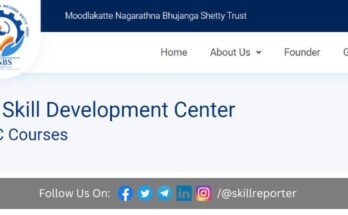Having lost their significance over the years, Employment Exchanges are in dire need of a revamp that will make them suit the changing employment trends and unemployment patterns.
During the course of working on this series, what I gathered from talking to officials is, in Karnataka seemingly there is no full-fledged plan yet to revamp the Employment Exchanges. However, some attempts have been and are being made by governments of the times to make Employment Exchanges relevant.
In 2008, Employment Exchange offices were given a major task of organizing job fairs. Since then, the Directorate of Employment and Training considers organizing job fairs as the most important task that the department has been entrusted with. While each Employment Exchange office is expected to organize minimum four mini job fairs in a year, mega job fairs are organized in collaboration with Karnataka Vocational Training and Skill Development (KVTSDC).
“Job fairs (Rojgar Melas) provide a platform for private companies to interview and select the candidates of their choice and vice versa. Normally 8 to 10 companies attend the regular job fairs. Over 200 companies and 3,000 to 4,000 candidates register at mega job fairs,” says Govindegowda, Joint Director at the Directorate of Employment and Training.
When asked about the number of placements to have taken place due to job fairs, he says not all who are selected during job fairs actually get jobs hence it is difficult to get the precise number. “Either they will reject the job offer or companies reject them. But still a few hundred of people get the jobs,” he maintains. The department’s data shows that only 1,220 candidates were given jobs in Udyoga Mela held in Bengaluru in 2016-17, but there is no data on how many candidates actually accepted them.
An initiative that did not help
In 2010, the Karnataka government took up an initiative to revamp some of the Employment Exchanges under Public Private Partnership. The government collaborated with TeamLease, an employment service agency, to come up with Employment Exchanges in modern avatar. But the drawback of this programme was, the modern Employment Exchanges were formed as a separate entity even as the government-run existing Employment Exchanges continued to function as before without a facelift. They were working in parallel to the government owned Exchanges.
While we do not know precisely why the PPP project was halted later, an official from the Employment Exchanges says the new private-run units were closed around four years ago because the government did not renew the agreement period.
In an article on Employment Exchanges published in The Hindu Business Line, TeamLease Vice President Neeti Sharma writes on how Employment Exchanges need to be strengthened by devising a means to match demand and supply. “An exchange not only provides information to employers and job-seekers, but can also act as a counselling and training centre for the latter, readying them for the demands of the workplace,” she notes.
Commenting on the misdiagnosing of the problems of Employment Exchanges by the State and the Central governments, she writes: “they (employment exchanges) need to be run with a service mentality, with proper management systems in place, strong employer linkages and a deep understanding of vocational training.”
Meanwhile, in an attempt to strengthen Employment Exchanges, the Directorate of Employment and Training introduced “Study Circle” scheme. As a part of the scheme, Employment Exchanges offer vocational guidance and training to applicants who appear for competitive exams.
Study Circles are functioning from five years. The scheme provides free pre-examination training to applicants who appear for competitive exams conducted by various recruitment agencies, says an officer at the Employment Exchange. Officers are also supposed to visit colleges to guide students on the opportunities available in the job market.
Trying to develop skills
The State government’s latest ambitious programme of Skill Development training “Kaushalya Karnataka” under a separate department – the Department of Skill Development, Entrepreneurship and Livelihood – is expected to upgrade the role of Employment Exchanges.
Kaushalya Karnataka was launched in May 2017 with an aim to provide jobs to one lakh youth in next one year. This programme intends to impart skills to the youth which they lack the most to become employable. Once the job seekers have registered under Kaushalya Karnataka, the government will tie-up with the training partners to help the youth get skill development programmes, says Ashraful Hasan, Managing Director of Karnataka Vocational Training and Skill Development.
He tells a lot of companies have agreed to set up skill training centres across the State including in Bengaluru and to offer training to the youth. Training will be provided free of cost to those who have registered. Training will make the youth eligible to get job in the job market.
Earlier during the visit to the Employment Exchanges offices, the officers had shared their concern about the youth lacking skill sets despite plenty of job opportunities. Employment Officer Sanath Kumar had said: “There are lot of vacancies in the private sector, but skills is what the candidates lag behind in. We have often received this feedback from the employers. Therefore, now we are telling the youth who come to register at Employment Exchanges to pursue skills.”
Even as several decades have passed since their establishment, Employment Exchanges hope to adapt themselves, revive someday and enjoy the status they once held.
Note : Article above is contribution of Akshatha M, a Staff Journalist at Citizen Matters.



